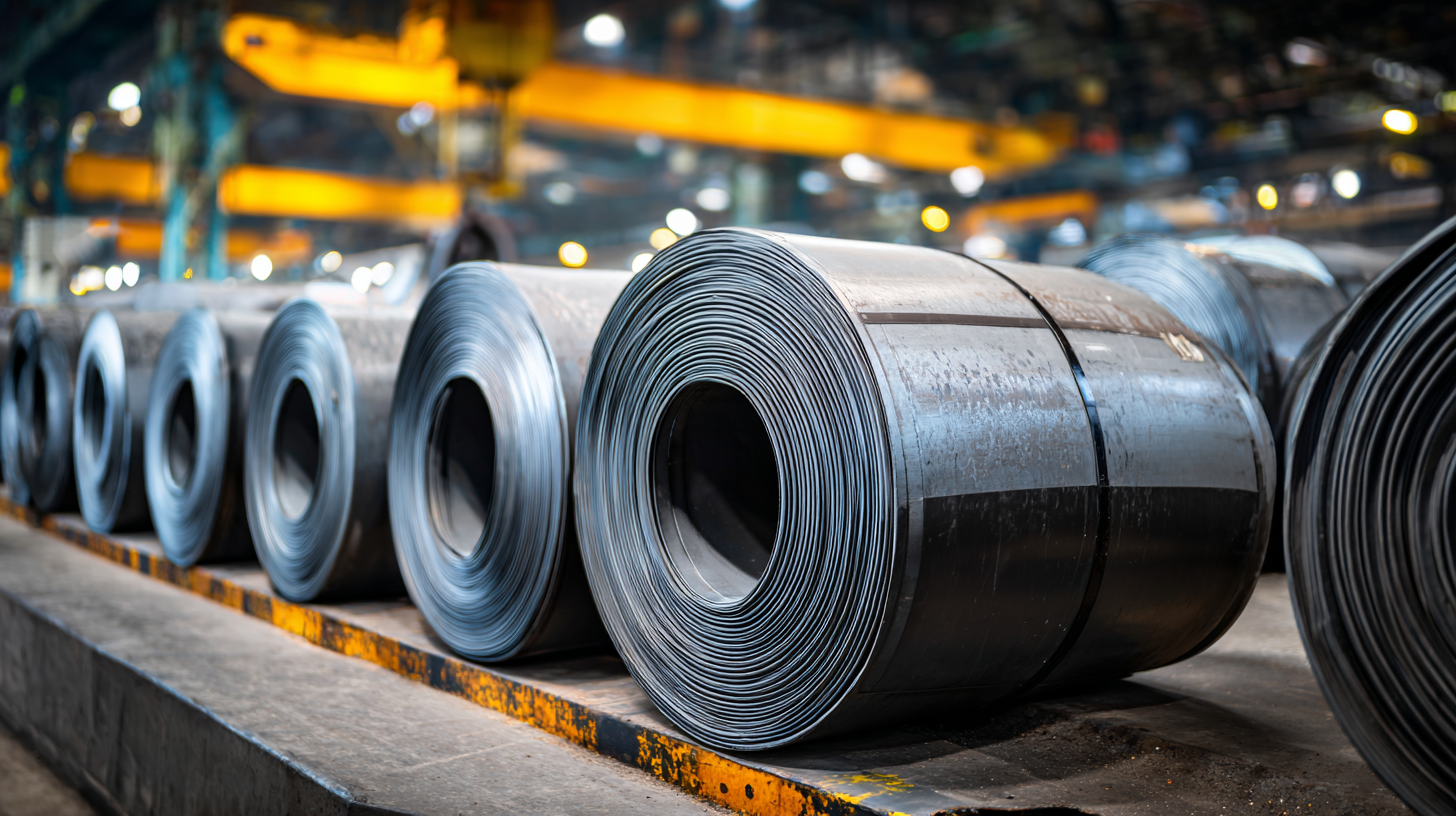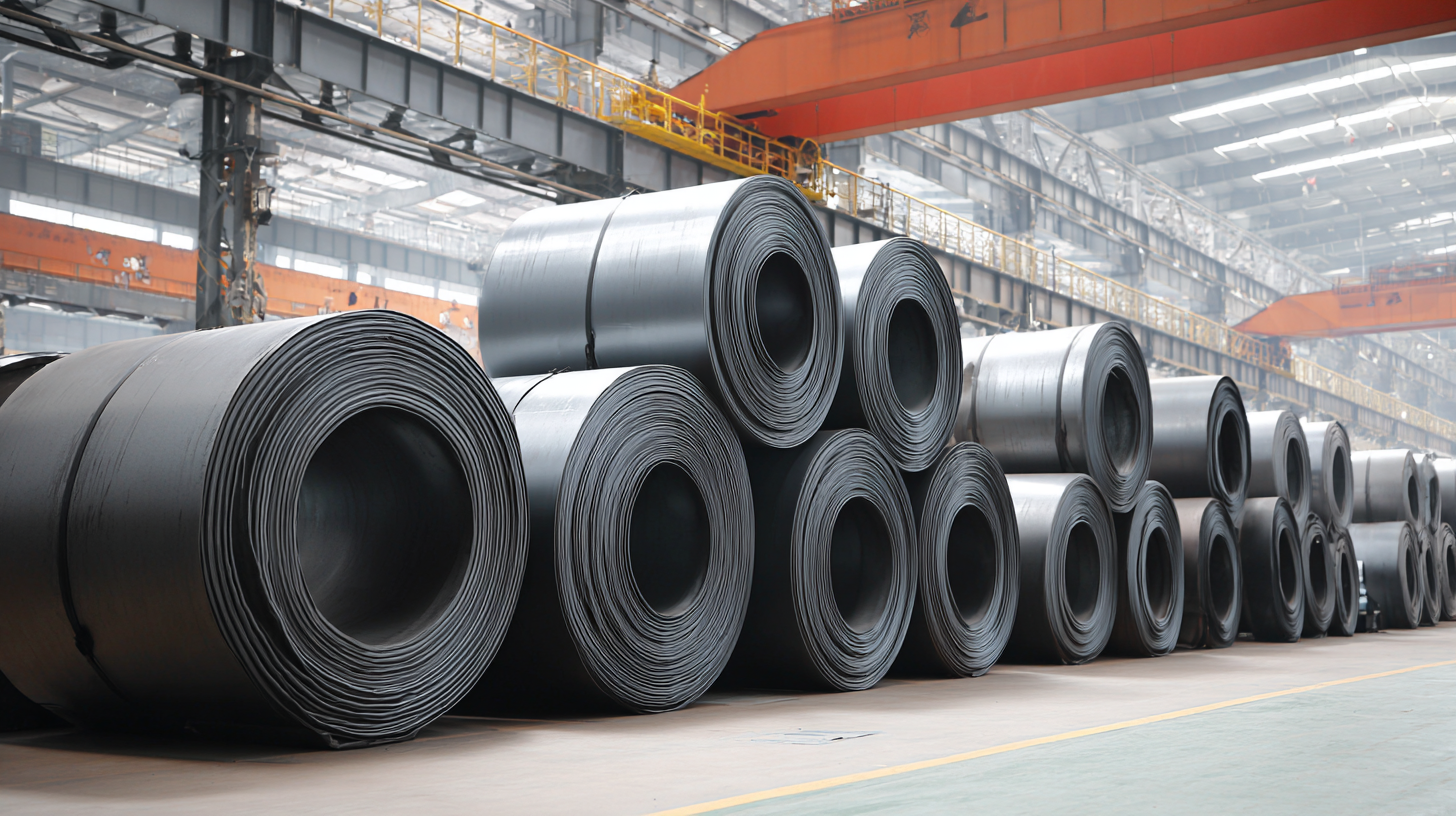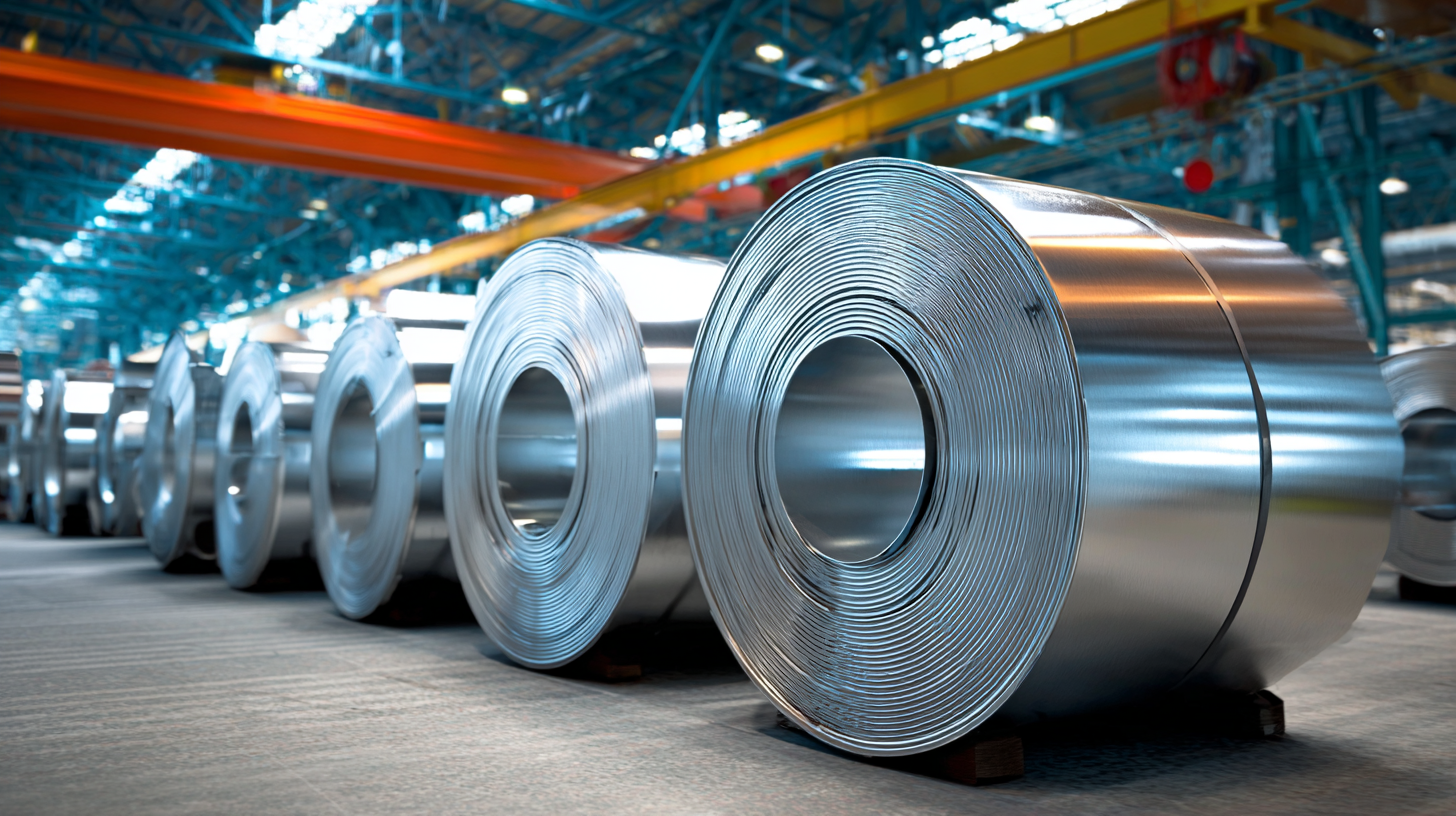In the global trade landscape, mastering import export certification is essential for companies dealing with high-demand products such as Hot Rolled Low Carbon Steel Coil. This versatile material, known for its strength and ductility, is a critical component in various industries, including automotive, construction, and manufacturing. As the market continues to expand, understanding the certification processes becomes crucial not only for compliance but also for ensuring product quality and competitiveness. In this blog, we will explore the solutions available for navigating the complexities of import export certification specifically tailored for Hot Rolled Low Carbon Steel Coil products. By delving into strategies, best practices, and compliance requirements, businesses can effectively streamline their operations and position themselves for success in the international market.

When it comes to sourcing hot rolled low carbon steel coils, identifying reliable suppliers is crucial to ensuring quality and compliance. A dependable supplier should possess a robust track record of compliance with international standards and certifications. This not only confirms their credibility but also guarantees that their products meet industry requirements. Certifications such as ISO 9001 or specific export certifications indicate a commitment to maintaining high operational standards and quality control processes, crucial for international trade.
Moreover, the transparency of a supplier in their production practices can significantly impact your decision-making process. A reliable supplier will openly share information about their manufacturing techniques, raw material sources, and sustainability practices. This transparency fosters trust and allows buyers to evaluate the ethical implications of their purchases. Furthermore, engaging in dialogue with potential suppliers can unveil their responsiveness to customer needs, an essential quality for building a successful long-term relationship.
These criteria help ensure that your supply chain remains not only efficient but also aligned with the best practices in the industry.
When navigating the world of import and export for hot rolled low carbon steel coil products, understanding the necessary certifications can be a crucial factor for suppliers. Import export certifications serve as a validation of the product's quality and compliance with international standards. Suppliers must be prepared to provide documentation that proves adherence to applicable regulations, such as the Certificate of Origin, which indicates the product's manufacturing location, and compliance certifications that showcase the material meets specific safety and quality benchmarks.
Additionally, suppliers should be aware of the Environmental Product Declaration (EPD) and Material Safety Data Sheet (MSDS). The EPD provides details on the environmental impact of the product throughout its lifecycle, while the MSDS outlines potential hazards associated with the material. Having these documents readily available not only simplifies the import-export process but also enhances credibility among potential buyers, ensuring a smooth transaction and fostering trust in the supplier's commitment to quality and safety standards in the metallurgy industry.
In the competitive landscape of hot-rolled low carbon steel coils, evaluating supplier experience and industry background is crucial for successful procurement. According to a report by the World Steel Association, a robust supply chain is fundamental in meeting the rising global demand for steel, which was projected to reach approximately 1.8 billion metric tons in 2023. Suppliers with extensive industry experience often demonstrate superior quality control and adherence to international standards, which are vital for maintaining product consistency and reliability.

Moreover, past performance in the steel industry can provide insights into a supplier's ability to navigate challenges, such as fluctuations in raw material prices or changes in regulatory frameworks. A study by Deloitte highlighted that suppliers with over a decade of experience are 30% more likely to deliver projects on time and within budget, emphasizing the importance of industry background. Thus, choosing suppliers with a solid track record not only mitigates risks but also enhances the overall effectiveness of procurement strategies in a market where quality and compliance are paramount.
 Effective communication with your suppliers is crucial when mastering certification for hot rolled low carbon steel coil products. It’s essential to establish clear channels of dialogue to ensure both parties understand the requirements and expectations throughout the import-export process. Regular updates and feedback can help align goals and improve transparency, minimizing misunderstandings that could lead to delays or complications.
Effective communication with your suppliers is crucial when mastering certification for hot rolled low carbon steel coil products. It’s essential to establish clear channels of dialogue to ensure both parties understand the requirements and expectations throughout the import-export process. Regular updates and feedback can help align goals and improve transparency, minimizing misunderstandings that could lead to delays or complications.
Listening actively to your suppliers' insights and concerns is equally important. This builds trust and fosters a collaborative environment where both parties are invested in the success of the operation. By asking open-ended questions, you engage your suppliers in a meaningful conversation, allowing them to share their expertise and any potential challenges in meeting certification standards. Such a partnership-centric approach can enhance product quality and streamline compliance efforts, ultimately leading to better outcomes in your import-export ventures.
When dealing with hot rolled low carbon steel coil products, conducting thorough supplier audits is essential to ensuring quality and compliance with industry standards. According to a report by the World Steel Association, effective supplier management can directly influence a company's reputation and bottom line, as up to 70% of production issues stem from raw material quality. Therefore, implementing a rigorous audit process not only mitigates risks but also fosters a culture of continuous improvement.
During supplier audits, businesses should focus on key areas such as production processes, safety protocols, and material certifications. The American Society for Testing and Materials (ASTM) highlights that adherence to Grade B standards for carbon steel can reduce defect rates by over 30%. Furthermore, by leveraging audit findings to enhance supplier relationships, companies can drive innovation and improve supply chain resilience. Investing in supplier audits is not just a regulatory requirement but a strategic imperative in today’s competitive market.
This chart illustrates the compliance levels of various quality standards for hot rolled low carbon steel coil products based on recent supplier audits. The data shows the percentage of suppliers meeting different quality certifications.





